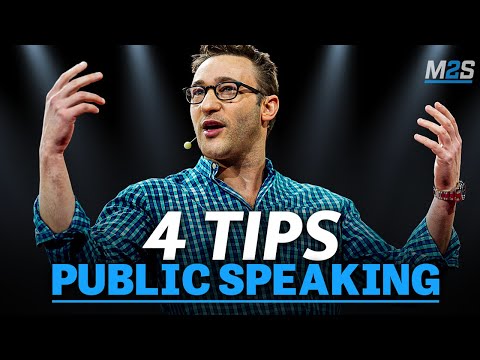Are you ready to take the stage and shine? In today’s fast-paced world, the ability to communicate effectively—becoming a better public speaker—can dramatically influence your career, relationships, and personal growth. Public speaking isn’t just about having the gift of gab; it’s about connecting, persuading, and inspiring an audience. Whether you’re prepping for a big conference, pitching an idea, or rallying a team at work, mastering this skill can set you apart from the crowd. This article provides actionable strategies and insights from some of the most successful figures in the industry to help you learn how to become a better speaker and communicator.

Understanding the Importance: Why You Should Become a Better Public Speaker
Let’s get one thing straight: public speaking isn’t just a skill—it’s a superpower. The ability to articulate your thoughts confidently can propel your career to new heights. When you learn how to become a better public speaker, you engage with others on a level that fosters deeper connections. Consider how Ashleigh Banfield, a distinguished journalist, captivates her audience with her clear and engaging communication style. Her presence not only informs but also inspires audiences to think critically about the issues at hand.
In fact, many leaders in various industries attribute their success to effective communication. Take the likes of Kali Woodruff carr, whose storytelling captivates and motivates. By becoming a better public speaker, you’re not just enhancing your skills; you’re also creating opportunities for advancement, building networks, and leaving a lasting impact. When you speak well, doors open, collaborations form, and you gain the trust and admiration of your peers.

Top 7 Tips to Become a Better Public Speaker
1. Master Your Content: Knowledge is Power
Let’s start with the foundation: content mastery. To truly shine on stage, you need to know your subject inside and out. Think of Sir Ken Robinson, whose expertise in education reform captivated millions through his TED Talks. He didn’t just show up; he came armed with deep understanding and insightful information. Research your topic thoroughly, anticipate questions, and prepare to delve deeper than the surface.
2. Practice, Practice, Practice: The Key to Confidence
Remember, practice makes perfect. Tony Robbins exemplifies this principle by rehearsing extensively. Practicing your speech doesn’t just promote fluency; it also allows you to refine your timing and delivery. Record yourself during practices to catch nuances in your performance. Not only does this boost your confidence, but it also prepares you for unexpected challenges. Embrace this step as your launchpad.
3. Harness the Power of Body Language
Nonverbal cues can speak volumes. Michelle Obama is a prime example of how body language can amplify your message. Her use of gestures, facial expressions, and posture creates a dynamic relationship with her audience. Stand tall, maintain eye contact, and use purposeful hand movements to enrich your delivery. Body language should complement your words, making your message more powerful.
4. Know Your Audience: Connect Emotionally
Understanding your audience can be the game-changer. Brene Brown crafts her talks to resonate deeply with her listeners emotions. By doing your homework, you can tailor your message to fit their interests, challenges, and aspirations. Ask questions to tap into their needs, making your speech relevant and impactful. This connection fosters loyalty and engagement.
5. Start with a Strong Opening: Hook Your Audience
First impressions matter. Think of Simon Sinek, who captivates audiences from the get-go with thought-provoking questions or compelling anecdotes. A powerful opening sets the stage for what’s to come, keeping your audience eager for more. Craft an opening line that grabs attention right away—make them lean in.
6. Utilize Visual Aids Effectively
Good visuals can be your best friend. Just look at how Steve Jobs dazzled audiences with slides during Apple launches. Effective visual aids should enhance your narrative, not distract. Use images, videos, or charts to provide clarity and assist your storytelling. Consider tools like Slides 4 to make creating impactful presentations a breeze.
7. Gather Feedback and Continually Improve
Once your speech is done, don’t shy away from feedback. Oprah Winfrey herself often seeks constructive criticism to fine-tune her performances. Reach out to trusted colleagues for their insights, and embrace the growth that comes from it. Adopt a mindset of continuous improvement to elevate your future speaking engagements. Remember, feedback is your compass for growth.

How to Become a Certified Motivational Speaker
If you’re passionate about elevating others while perfecting your craft, you might want to consider becoming a certified motivational speaker. Join organizations like the National Speakers Association for valuable resources and networking. Participate in workshops and courses designed to enhance your expertise and storytelling skills. Along the way, cultivate your personal brand, embodying the qualities that make you genuinely inspiring.

Tips to Balance Speaking Success and Authenticity
Amid all the tips and best practices, stay true to yourself. Authenticity is critical; inject your unique personality into your presentations. Audiences are drawn to speakers who are relatable and genuine—who they can trust. Remember, it’s your stories and insights woven with authenticity that make your message memorable.

The Importance of Storytelling in Public Speaking
Let’s face it: stories connect us. Successful speakers like Brené Brown know this well, often sharing personal anecdotes that resonate deeply with audiences. Incorporate storytelling into your presentations; a well-placed story can breathe life into your message. It creates a memorable experience that keeps your audience invested and involved.
Final Thoughts on Becoming a Better Public Speaker
Becoming a better public speaker is a journey, not a race. It requires dedication, adaptation, and a keen willingness to learn from every experience. By applying these tips and observing effective communicators, you can develop into a speaker who resonates with audiences far and wide. Embrace the challenges, welcome feedback, and share your passion and knowledge confidently. Remember, your voice can change lives—make sure you wield it effectively and passionately.
Now that you’re equipped with these essential tips, it’s time to get out there and own your speaking engagements! Ready to dive deeper? Consider exploring resources on How To become better speaker or even seek local options for free speaking Classes near You. The journey starts here; ignite your potential to change the world, one speaking engagement at a time!
Become a Better Public Speaker
When it comes to public speaking, did you know that the fear of it, called glossophobia, affects nearly 75% of people? Crazy, right? But don’t sweat it! With a little practice and the right mindset, you can become a better public speaker and leave the jitters behind. Just think about all those famous figures, from politicians to entertainers, who’ve mastered the art of persuasion. They didn’t start off that way; they took time to hone their skills and connect with their audiences. Speaking of connection, even major brands like the Bank Of Montreal have their own strategies that help them communicate clearly and engagingly!
Now let’s sprinkle in some cool trivia! Did you know that an infamous outbreak in 2006 dubbed the “McDonald’s E. Coli scare” led to changes not just in food safety protocols but also in how businesses communicate risk to their customers? This is a superb example of how storytelling and clear communication can turn a potential disaster into an opportunity for growth. For anyone looking to become a better public speaker, learning to convey messages effectively is essential—just like crafting the perfect hamburger. And if you’re feeling stuck, check out How To get good at public speaking for tips that can transform your delivery!
When you’re up on stage, engaging your audience is crucial. It’s like being part of a community, and that’s often what makes the experience memorable. In a fun twist, there’s a new show called Twisted Neighbor 2024, where participants get to experience unique and engaging storytelling that keeps them guessing. This is the kind of creativity you can bring to your presentations! Injecting humor or personal anecdotes can not only add a flair but also help forge a connection. Remember, becoming a better public speaker isn’t just about the words you say; it’s about creating an atmosphere where your audience feels involved and invested. So why not dive into these engaging storytelling tactics? It’s a surefire way to elevate your public speaking game!










